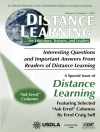Contraband Cultures presents narratives, representations, practices and imaginaries of smuggling and extra-legal or informal circulation practices, across and between the Latin American region (including the Caribbean) and its diasporas. Countering a fetishizing and hegemonic imaginary (typically stemming from the Global North) of smuggling activity in Latin America as chaotic, lawless, violent and somehow ‘exotic’, this book reframes such activities through the lenses of kinship, political movements, economic exchange and resistance to capitalist state hegemony.
The volume comprises a broad range of chapters from scholars across the social sciences and humanities, using various methodological techniques, theoretical traditions and analytic approaches to explore the efficacy and valence of ‘smuggling’ or ‘contraband’ as a lens onto modes of personhood, materiality, statehood and political (dis)connection across Latin America. This material is presented through a combination of historic documentation and contemporary ethnographic research across the region to highlight the genesis and development of these cultural practices whilst grounding them in the capitalist and colonial refashioning of the entire region from the sixteenth century to the present day.
Inhaltsverzeichnis
List of figures
List of contributors
Acknowledgements
Introduction: contraband as culture, culture as contraband
Jennifer Cearns and Charles Beach
1 ‚Born in this abominable sin‘: contraband trade in colonial Spanish America
Joseph M.H. Clark
2 ‚Yo siempre quise ser bichote‘ en ‚P FKN R‘: Bad Bunny and the representation of Puerto Rican narcoculture in the gore capitalism era
Luis Javier Cintrón-Gutiérrez
3 Entitled to contraband: citizenship and sovereignty in an Indigenous borderland (Guyana-Venezuela)
Olivier Allard
4 Ranching, rustling and wage-work: navigating the entangled smuggling economy in northern Paraguay
Cari Tusing
5 Emprendedores forzados: Ex-smugglers of Venezuelan petrol turned unwilling entrepreneurs in the Colombian border-city of Cúcuta
Charles Beach
6 Abundance as an ethic: emergency food ingress and moral concern in Venezuela
Eva van Roekel
7 Crush your pills: smuggling medication into Rio de Janeiro’s prisons
David C. Thompson
8 Intermediaries in the Haitian wout: the dynamics of (im)mobilities in the Americas
Mélanie Montinard
9 ‚We don’t produce anything in Bolivia‘: subordinate financialization and contraband economies in the Bolivia-Argentina borderlands
Charles Dolph
10 ‘Los piratas del Caribe’: disrupting capitalism through digital piracy in Cuba
Jennifer Cearns
11 Counterfeit: disruption and creation in the files of transnational adoptions from Guatemala to Europe
Silvia Posocco and Sophie Villérs
12 Conclusion: beyond contraband
Rebecca Galemba
Index
Über den Autor
Charles Beach is Interim Lecturer in Political Anthropology at King’s College London.












